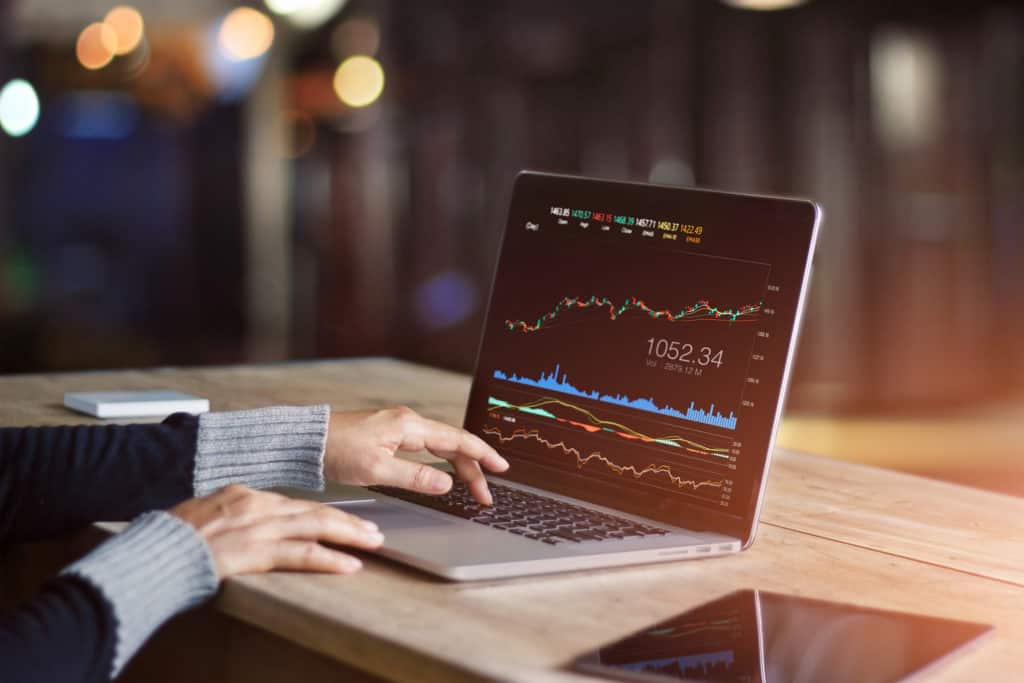Share this page:
After a long bull market, it’s time to take a breath and step back. Could a stock market crash be on the cards? Or will it be business as usual during 2022? And if there is a crash, what can you do to protect your investment portfolio?
According to recent research by investment business Aegon Asset Management, there are currently three global threats that could rock the stock market during 2022. I take a look and explain whether there’s anything you can do to protect your investment portfolio in a time of economic uncertainty.
Inflation could trigger a stock market crash
Inflation is currently a nightmare for consumers, increasing fears of a cost of living crisis in the UK. And it’s also causing governments and central banks a big headache.
This inflation is partly caused by supplier shortages due to the Covid-19 pandemic. Stephen Jones of Aegon Asset Management comments that “the bulk of global inflation surprises … reflect supply chain disruptions.”
No one knows how high inflation will go in 2022, and it’s possible that prices will continue to escalate. If that happens, many central banks will try to control inflation by hiking interest rates. According to Stephen Jones, in the US, “there is reasonable probability of seven rate hikes this year.”
With so many predicted interest rate hikes, there may be a knock-on effect in the wider economy. US consumers and businesses are likely to reduce their spending, and this may negatively impact stock market prices and, as a result, your investment portfolio.
Stock market traders have had a case of the jitters so far in 2022. And further economic uncertainty may lead to a stock market crash as market confidence decreases.
Governments withdraw economic support
Many global governments have provided economic support to businesses and consumers during the Covid-19 pandemic. But this support is likely to be removed during 2022.
Stephen Jones comments that “Governments played a major role in supporting demand over the last couple of years and the removal of this support will likely cause the pace of economic growth to ease.” This may lead to a global slow-down, causing stock market prices to falter and increasing the risk of a full-blown stock market crash.
The threat of conflict may affect your investment portfolio
There seems to be an increasing risk of conflict between Russia and Ukraine. According to Stephen Jones, “If this risk abates, this will remove an uncertainty for the markets, which would ease investors’ concerns.” However, the opposite is also true. If the crisis continues and gets worse, this could lead to more economic uncertainty, risking market confidence and further depressing share prices.
How to prepare your portfolio for a stock market crash
No one knows for sure when the next stock market crash will be. Historically, there’s a bear market on average every three years, but some are worse than others. And, although there are some signs of global recovery after the Covid-19 pandemic, there is still enough global uncertainty to suggest that a stock market crash is possible.
Whatever happens during 2022, it’s always a good idea to prepare yourself and your investment portfolio for a possible stock market crash.
Here are some things you can do:
- Make sure your portfolio is diversified. That means spreading your investment portfolio across many companies and several geographies. If you’re just invested in a few companies, then you’ll be super-exposed if one of them fails. Many stocks and shares ISAs have funds that will help you invest across the whole of a share index. Take a look at our top-rated stocks and shares ISAs for some ideas.
- If you’re nervous about price volatility, then consider investing in other asset classes like bonds or commodities. They tend to have different growth cycles to equities, so price fluctuations may cancel each other out.
- Don’t invest money you’ll need in the next five years. Most experts recommend saving short-term investments in other asset classes rather than stocks. That’s because there’s a big risk you may lose money if you need to access your investments when prices have dropped.
- Invest for the long term. If you can afford to leave your investments alone during a stock market crash, then you don’t need to worry. Stock markets tend to outperform cash and bonds in the long run, even though they’re more volatile in the short term.
Was this article helpful?
YesNo
About the author
Alice is a Suffolk-based personal finance writer specialising in pensions, tax, investment and small businesses. She is a qualified Chartered Accountant and has previously worked for KPMG London and Tesco Plc.
Share this page:
Some offers on The Motley Fool UK site are from our partners — it’s how we make money and keep this site going. But does that impact our ratings? Nope. Our commitment is to you. If a product isn’t any good, our rating will reflect that, or we won’t list it at all. Also, while we aim to feature the best products available, we do not review every product on the market. Learn more here. The statements above are The Motley Fool’s alone and have not been provided or endorsed by bank advertisers. John Mackey, CEO of Whole Foods Market, an Amazon subsidiary, is a member of The Motley Fool’s board of directors. The Motley Fool UK has recommended Barclays, Hargreaves Lansdown, HSBC Holdings, Lloyds Banking Group, Mastercard, and Tesco.
This post was originally published on Motley Fool







